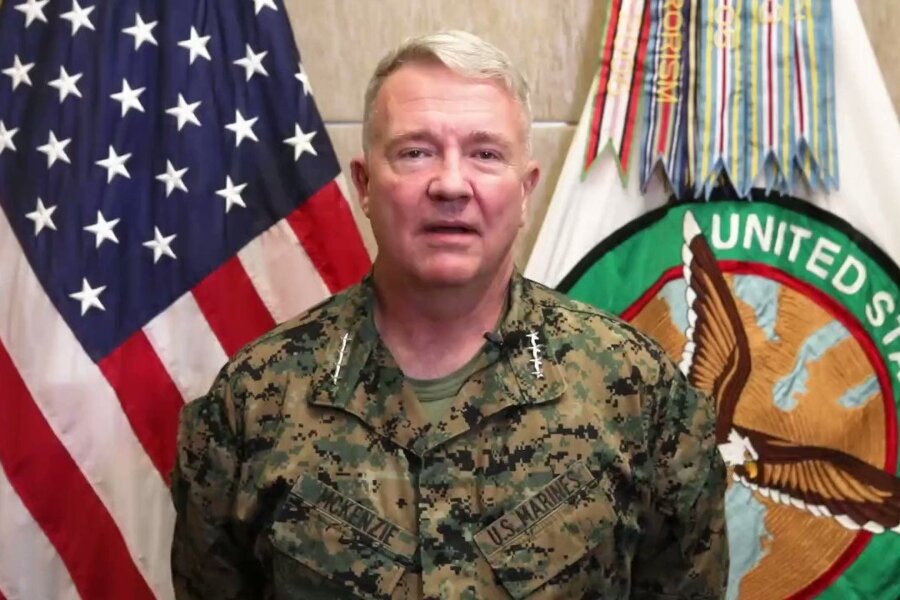The former leader of the U.S. military’s Middle East command has warned that the threat from ISIS is increasing. This comes shortly after the terrorist group claimed responsibility for an attack in Russia that resulted in numerous casualties.
Retired Gen. Frank McKenzie, former commander of U.S. Central Command (CENTCOM), told ABC News on Sunday that ISIS-K has the capability to carry out such attacks due to the lack of pressure “in their homeland and their base.”
ISIS-K, reportedly based in Afghanistan and Pakistan, claimed responsibility for an attack at a Moscow concert hall in late March, resulting in at least 144 fatalities.
“Unfortunately, we no longer place that pressure on them, so they’re free to gain strength, they’re free to plan, they’re free to coordinate and to outreach that hit us in our homelands,” Mr. McKenzie said.
“So, you might as well be playing an away game than a home game. We’ve chosen to play a home game,” he added.
When asked by ABC News host Martha Raddatz about whether the ISIS threat would be different if U.S. forces were not pulled out of Afghanistan and left 2,500 troops there, the former general said that it “would be different.”
“Leaving 2,500 troops, along with our NATO partners, who would have left 4,000 or 5,000 troops, we would have been able to continue to work against ISIS, which was the principal reason we’re in Afghanistan, to prevent attacks in our homeland,” Mr. McKenzie said. “I think we might be in a different place now. I think we might actually be safer than we are.”
In Afghanistan, the United States currently lacks the ability to launch strikes or gather intelligence within the country. This allows ISIS to expand without hindrance, as there is no external pressure on them.
“And, again, our operating theory has always been with violent extremists, you want local security forces to be able to control them, and then you want them to not be able to establish a connective tissue internationally that allows them to carry out external attacks abroad—and it’s very hard to do that in Afghanistan, where you just don’t have the ability to sense, you don’t have the ability to strike, and very limited resources,” he said.
On March 22, attackers armed with automatic weapons targeted concert attendees at Moscow’s Crocus City Hall, resulting in the deaths of at least 144 individuals. ISIS claimed responsibility for the attack and released footage of the incident. Both the United States and France assert that intelligence indicates ISIS’s involvement in the assault.
The motive for the attack is not clear. Russia, along with the U.S. and Syrian government forces, played a major role in defeating ISIS in Syria. After being forced out of Syria, its fighters scattered, and different branches emerged, including an Afghan branch, ISIS-Khorasan, which seeks a caliphate across Afghanistan, Pakistan, Turkmenistan, Tajikistan, Uzbekistan, and Iran.
“I think the threat is growing,” Mr. McKenzie said Sunday. “It began to grow as soon as we left Afghanistan, took pressure off ISIS-K. So I think we should expect further attempts of this nature against the United States as well as our partners and other nations abroad. I think this is inevitable.”
Share your thoughts by scrolling down to leave a comment.













